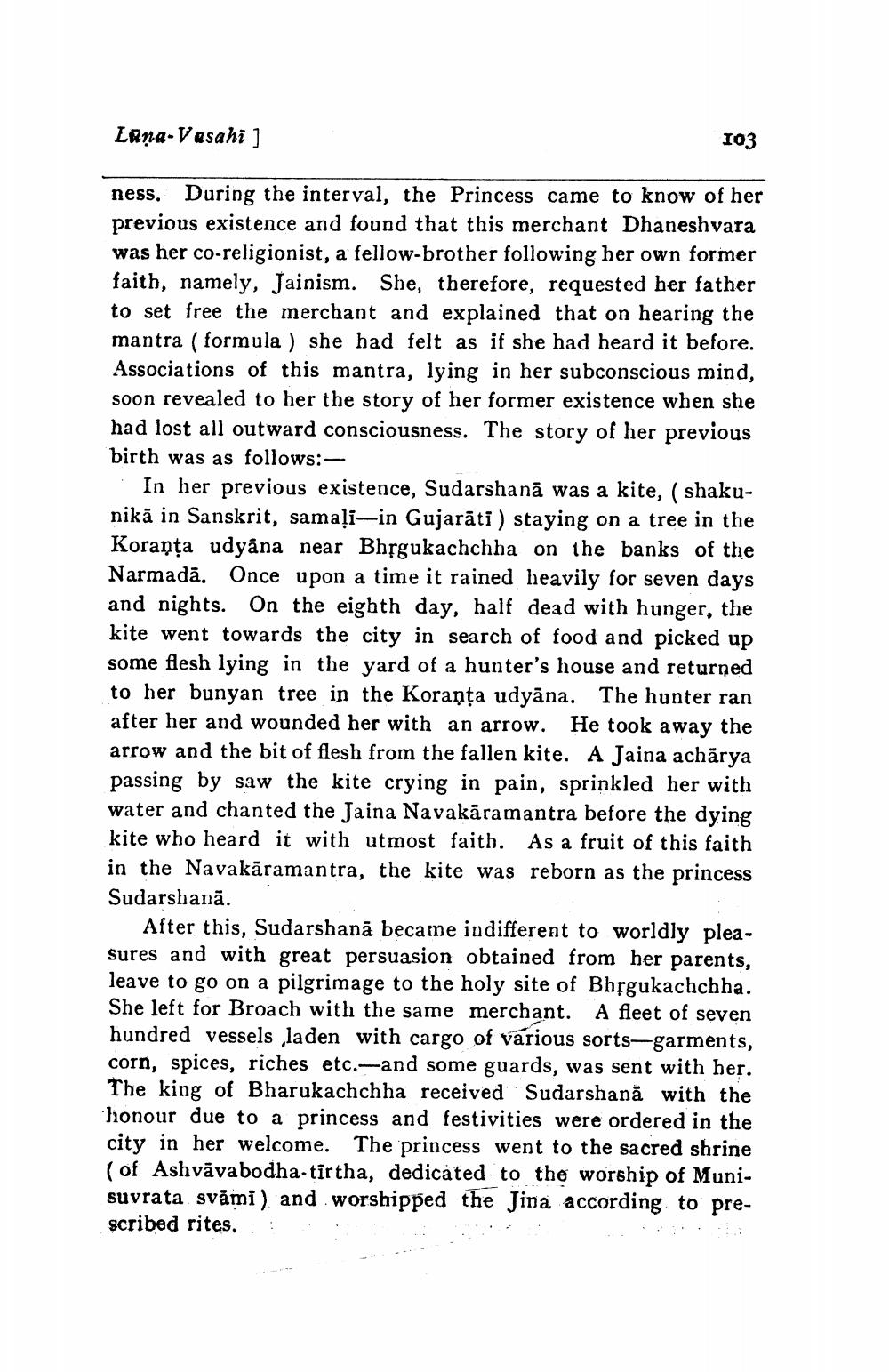________________
Lana-Vasahi ]
103
ness. During the interval, the Princess came to know of her previous existence and found that this merchant Dhaneshvara was her co-religionist, a fellow-brother following her own former faith, namely, Jainism. She, therefore, requested her father to set free the merchant and explained that on hearing the mantra (formula) she had felt as if she had heard it before. Associations of this mantra, lying in her subconscious mind, soon revealed to her the story of her former existence when she had lost all outward consciousness. The story of her previous birth was as follows:
In her previous existence, Sudarshanā was a kite, ( shakunikā in Sanskrit, samaļi—in Gujarāti) staying on a tree in the Koranța udyana near Bhrgukachchha on the banks of the Narmadā. Once upon a time it rained heavily for seven days and nights. On the eighth day, half dead with hunger, the kite went towards the city in search of food and picked up some flesh lying in the yard of a hunter's house and returned to her bunyan tree in the Koranța udyāna. The hunter ran after her and wounded her with an arrow. He took away the arrow and the bit of flesh from the fallen kite. A Jaina achārya passing by saw the kite crying in pain, sprinkled her with water and chanted the Jaina Navakaramantra before the dying kite who heard it with utmost faith. As a fruit of this faith in the Navakāramantra, the kite was reborn as the princess Sudarshanā.
After this, Sudarshanā became indifferent to worldly pleasures and with great persuasion obtained from her parents, leave to go on a pilgrimage to the holy site of Bhřgukachchha. She left for Broach with the same merchant. A fleet of seven hundred vessels laden with cargo of various sorts-garments, corn, spices, riches etc.-and some guards, was sent with her. The king of Bharukachchha received Sudarshan with the honour due to a princess and festivities were ordered in the city in her welcome. The princess went to the sacred shrine (of Ashvavabodha-tirtha, dedicated to the worship of Munisuvrata svåmi) and worshipped the Jina according to prescribed rites,




